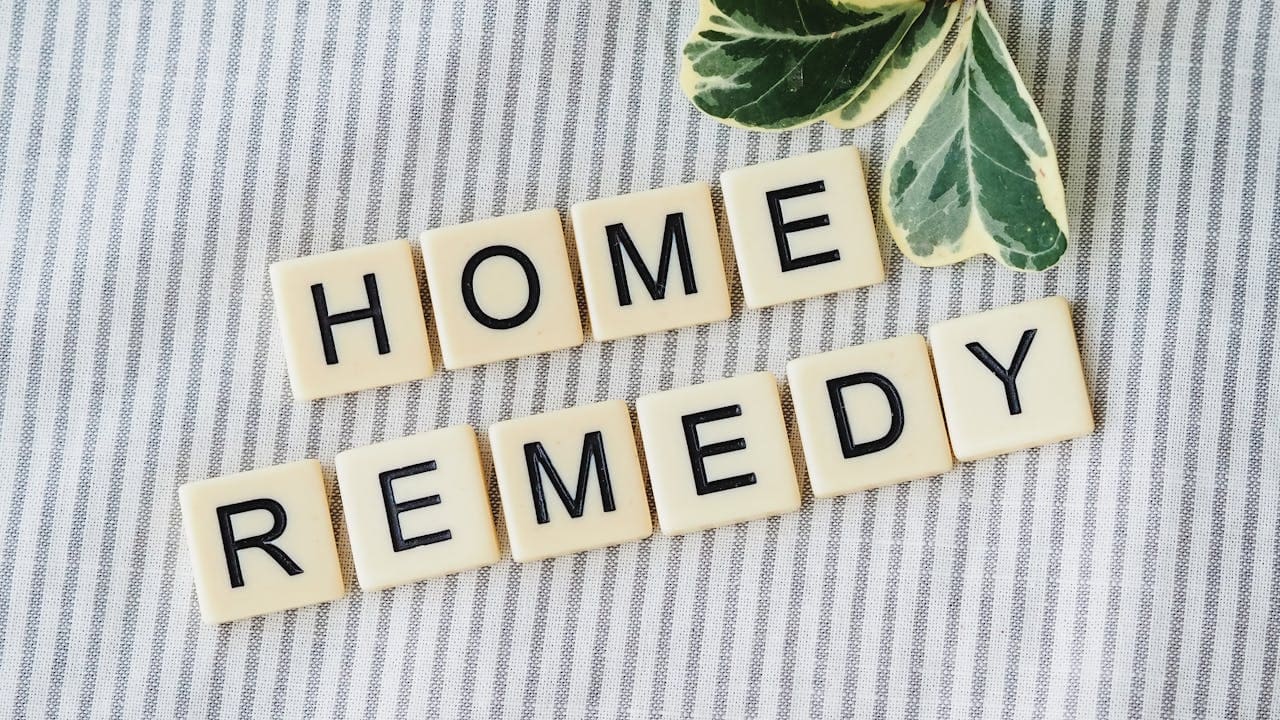Table of Contents
Why home remedies for mosquito larvae?
Although there are many commercial products available in market for killing mosquito larvae, but there are other home remedies for mosquito larvae that are more cost-effective and easily available at household. These home remedies are also preferred by many of us because they are safe to use at home around kids, babies and pets. Not only safe they are also environmentally friendly and non toxic to other organisms and animals.
This allows more better control over its use and any cross contamination between other household items, which may not be that dangerous as when harsh toxic chemicals are used. No specialized equipment or preparations or knowledge is required while using these home remedies.
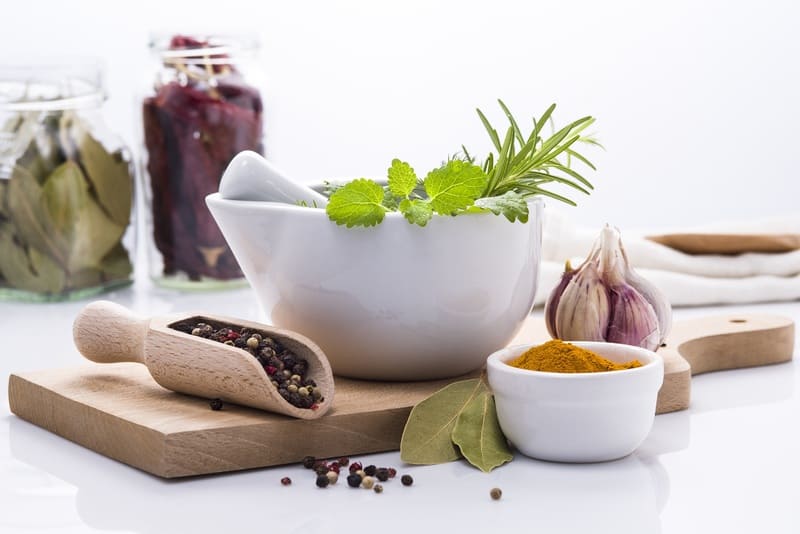
Image Credit: Google Images (Creative Commons License) | Content License
Effective home remedies for mosquito larvae
Simple household items like, dish soap, shampoo, vegetable oil, vinegar, salt, etc. can be effectively used to kill mosquito larvae at home. Since, these household items are safe and inexpensive they can be used repeatedly and frequently as needed.
1. Dish soap or shampoo
How it works:
These are commonly available in every household, you can use any kind of dish soap or any shampoo. These are made using surfactants (surface active agents) which are responsible for releasing dirt and soil from our clothes while washing. These surfactants reduces the surface tension of water and this causes larvae to sink and drown to the bottom.
This lowered surface tension of water restricts the larvae to swim up and come to the surface where they get access to Oxygen.
Due to low surface tension, they are unable to come at the surface and get Oxygen for their development. As they used to float just below the water surface for continuous access to oxygen, this disruption of surface tension makes them incapable of floating. And no access to Oxygen leads to suffocation and drowning of larvae within the water.

Image Credit: Pexels by Sarah Chai | Content License
How to use:
- Add few drops of dish soap or shampoo in the standing water where larvae are present.
- Stir well to mix it thoroughly and evenly.
- Allow some time to settle the suffocated larvae to the bottom.
- If it is not that effective, increase the concentration.
- Repeat after every few days, specially after raining or peak breeding season.
Where to use:
It can be used in water bodies like backyard lawn, water features, fountain, bird baths, plant pots, rain barrels, etc. Not that effective where the water is very shallow, or hardly any water, like puddles, marsh land, damp piles of grass clippings, etc.
2. Vinegar
How it works:
Vinegar, specially white vinegar, when added to standing water in sufficient quantity, lowers the pH drastically to around 3 to 4. In such a highly acidic environment the larvae’s development process (called as molting) is disrupted and causes cellular damage. This affects their osmoregulation and overall physiology, because of which they can’t survive any longer.
Also, the vinegar forms a layer at the water surface which creates a barrier to Oxygen. Because of this they fail to access Oxygen and suffocate at the same time which leads to their death.
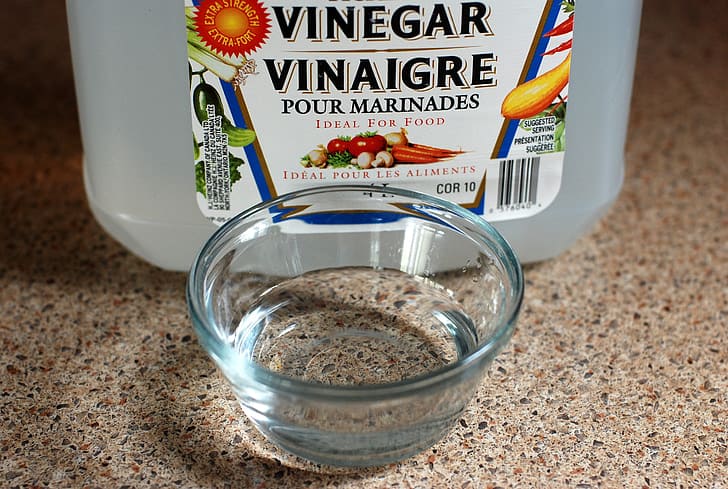
Image Credit: Google Images | Creative Commons License
How to use:
- Take 1 part of white vinegar with 3 parts of water (1:3 ratio).
- Mix the solution and add directly to the standing water.
- Spread it evenly throughout the water to cover all the larvae present in water.
- Allow some time for vinegar to complete the action.
- Reapply if necessary, or keep the water acidic to avoid any further laying of eggs by mosquitoes.
Where to use:
It can be used in small quantities of water like, toilet bowls, clogged drainages, septic water tanks, rain barrels, etc. It can’t be used in water bodies where the water is to be used again frequently or around other organisms and plants, like plant pots, bird baths, swimming pools, ponds, etc. It can’t be sued in places where there are tiles and marbles, as they can lead to corrosion.
3. Vegetable oil
How it works:
The vegetable oil forms a thin layer on the surface of water as they float on the surface, being lighter than the water. This thin layer restricts any penetration of air or oxygen, thus creating a barrier. This oil layer forms a hydrophobic film on the surface and do not allow the larvae to come and float at the surface. As the larvae needs Oxygen for their development, and without access to Oxygen or air they suffocate and eventually die.
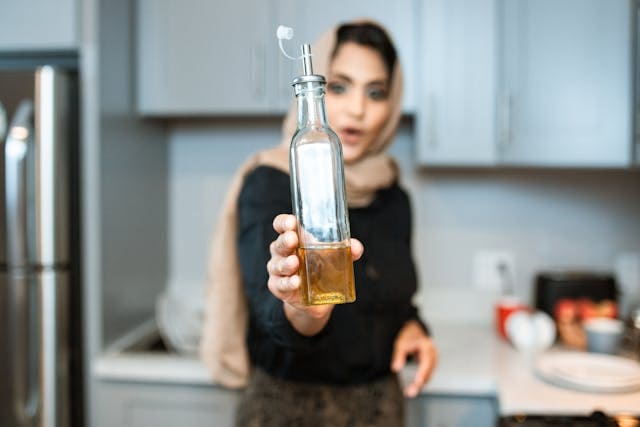
Image Credit: Pexels by RDNE Stock project | Content License
How to use:
- Take a tablespoon of any vegetable oil and add to the standing water.
- When stirred properly, the oil will spread all over the surface forming a thin layer of oil at the surface.
- Keep the water as it is for a while, this will suffocate and kill the mosquito larvae.
Where to use:
This method works well in small containers, and decorative ponds without aquatic life, rain barrels, etc. But it can’t be used in larger water bodies with other organism sand aquatic life.
4. Salt
How it works:
Salt is the most common household item available in each and every house. It is the safest, cheapest, natural and non-toxic method for mosquito larvae control.
When salt is added to water, it increases the salinity and dehydrates the larvae by disrupting the osmotic balance inside the larvae. As the larvae lives in fresh waters only, they are unable to survive in this high salinity, as a result they die due to severe dehydration.
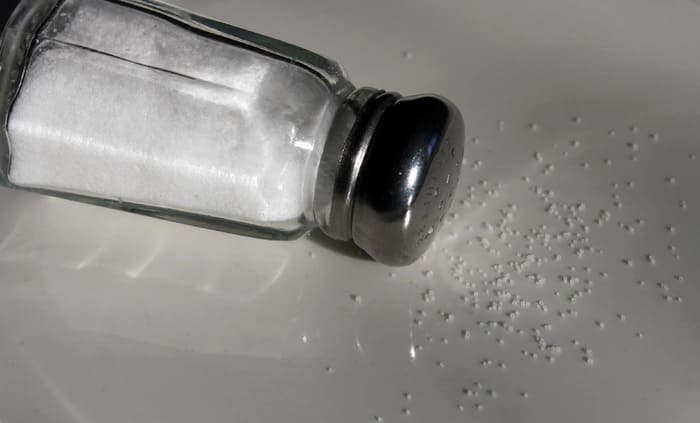
Image Credit: Google Images | Creative Commons License
How to use:
- Add sufficient quantity of table salt or rock salt in the standing water.
- Around 1/4th cup of salt per gallon should be added to create the required salinity that will kill mosquito larvae in standing water.
- Add once and reapplication is not required unless after heavy rainfall or any dilution by other means.
Where to use:
This can be slower process as compared to other methods which involves commercial products like BTI, mosquito dunks, etc. However, it can be used safely around kids and pets without any danger.
5. Phenyl
How it works:
Phenyl is basically a disinfectant and has antiseptic properties. When Phenyl is added to standing water it poisons the larvae and kills them in small span of time. This disrupts the natural molting process and due to poisoning and cellular damage they die later.
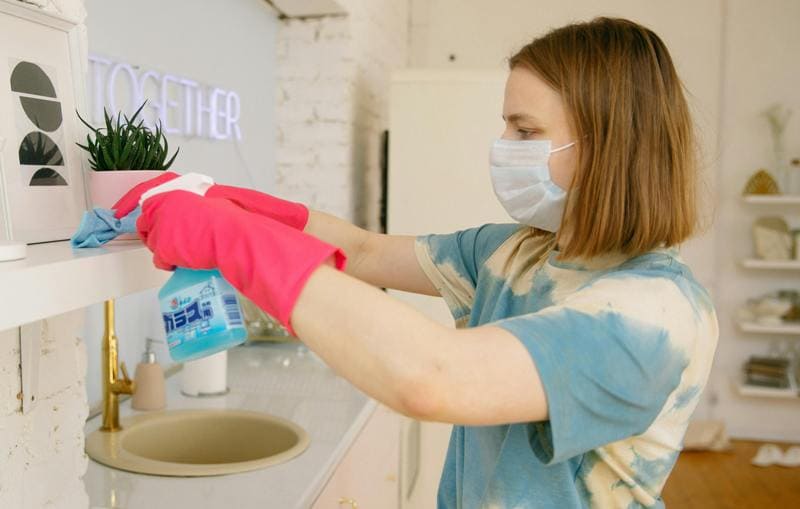
Image Credit: Pexels by Polina Zimmerman | Content License
How to use:
- Add few drops of phenyl in the standing water where larvae are present.
- Stir well to mix it thoroughly and evenly.
- Increase the concentration or reapply, if needed.
- Repeat after every few days, specially after raining or peak breeding season.
Where to use:
It can be used in clogged drainages, bathrooms, leakages, gutters, etc. Since it is a disinfectant it will provide safety from other harmful germs and bacteria.
6. Garlic solution
How it works:
Garlic contains sulfur compounds and releases allicin when crushed or boiled, these sulfur compounds and allicin creates an unpleasant environment for mosquitoes and further prevents adult female mosquitoes from from laying eggs and breed.
This sulfur compounds are toxic to the larvae and causes death when added in sufficient amount.
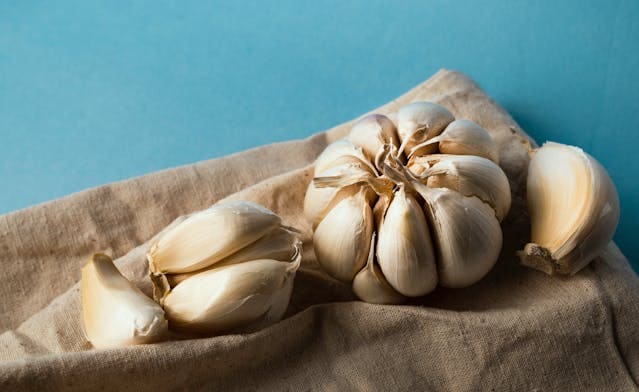
Image Credit: Pexels by Jievani | Content License
How to use:
- Take some garlic cloves and crush them and boil in water.
- Add this garlic-infused water directly into the standing water.
- Allow some time to complete the action. Due to the hostile and unpleasant environment they will struggle and ultimately will die.
Where to use:
Garlic method is safe and non-toxic and can be easily used near kids and pets. It is a natural and safe alternative as compared to other alternatives.
Other methods not heard of but worth trying
The following are some more options that are worth trying and can be promising in giving better results:
- Lemon juice
- Camphor
- Baking Soda
- Neem oil
- Eucalyptus oil
- Coffee grounds
Conclusion
Each of these home remedies for mosquito larvae vary in strengths and effectiveness, and should be selected as needed. Some are very cheap and simple to use without any extra efforts. While few may be unsafe for other organisms like fish, tadpoles, frogs, etc.
These home remedies provide practical tried and tested methods to keep mosquito larvae under control. Regular application should be done to maintain the effectiveness of these home remedies. No extra purchase, or efforts required. Just select the household item that suits your need, and follow the simple instruction and keep patience for some time to complete the action.
Frequently Asked Questions (FAQs)
-
Are home remedies as effective as commercial methods?
No, not at all. The commercial products are specially designed and engineered products which specifically made for killing larvae. Mosquito Dunks, BTI pellets, Methoprene, Insecticides, Larvicides, etc. are much effective than home remedies. The use of simple and household items are just for small water bodies and not where large standing waters are need to be treated like pond, swimming pool, etc.
-
How often should I use home remedies for mosquito larvae?
Home remedies should be applied regularly, to avoid severe infestation. Some home remedies are useful in keeping the adult mosquitoes away and restrict them for laying eggs. They repel mosquitoes and thus we can avoid more eggs in future that may hatch and create a nuisance around.

